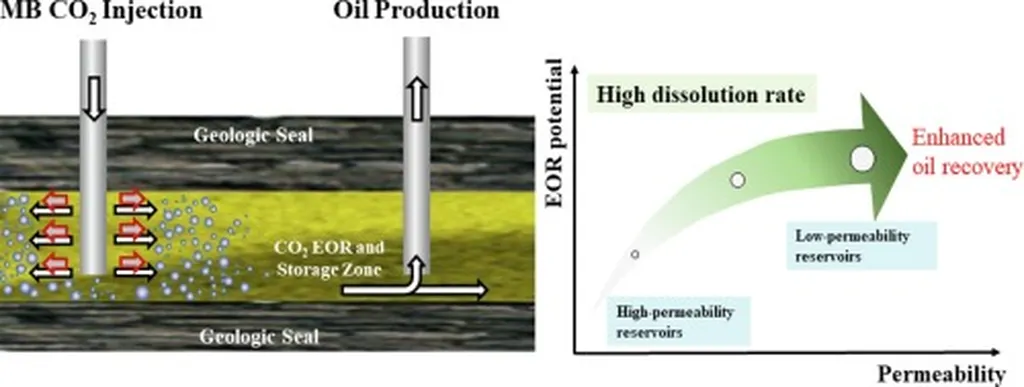In the quest to mitigate climate change, the energy sector is increasingly turning to carbon capture and storage (CCS) as a viable solution. A recent study published in the journal Petroleum Research, conducted by Malik Muhammad Ali Awan from the University of Engineering and Technology (UET) in Lahore, Pakistan, sheds new light on the potential of depleted oil reservoirs for CO2 sequestration. The research, which utilized advanced simulation modeling, offers promising insights into how these reservoirs can play a crucial role in achieving net-zero emissions.
Depleted oil and gas reservoirs, with their inherent porosity and permeability, present an attractive option for storing CO2. Awan’s study, which employed a commercial compositional simulator, provides a detailed analysis of CO2 storage in subsurface oil reservoirs. The research focused on examining the behavior of CO2 during injection, using gas injection profiles to monitor changes over time and at different rates.
One of the key findings of the study is that reservoir pressure changes uniformly across all layers and grid blocks, indicating the suitability of the evaluated reservoir for CO2 storage. “The uniform pressure distribution suggests that the reservoir can handle the injection of CO2 without significant pressure buildup, which is crucial for safe and effective storage,” Awan explained.
The simulation results demonstrated that continuous injection of CO2 at a rate of 3,500 Mscf/day over a period of 10 years led to a successful storage scenario. As the reservoir reached its space limit, the injection rate naturally dropped to zero, highlighting the feasibility and effectiveness of CO2 storage in mitigating greenhouse gas emissions.
The implications of this research are significant for the energy sector. As developing countries, which are often more vulnerable to the impacts of climate change, seek to implement CCS on a large scale, the findings provide a roadmap for leveraging depleted oil reservoirs. This approach not only addresses the challenges of climate change but also offers a commercial opportunity for the energy industry.
“By repurposing depleted oil reservoirs for CO2 storage, we can turn a liability into an asset,” Awan noted. “This not only helps in reducing atmospheric CO2 levels but also creates new revenue streams for the energy sector.”
The use of simulation modeling in this study represents a significant advancement in the field of CCS. By providing a detailed and comprehensive analysis, the research paves the way for future developments in CO2 sequestration. As the energy sector continues to evolve, the insights gained from this study will be instrumental in shaping policies and practices aimed at achieving net-zero emissions.
The study, published in Petroleum Research, underscores the importance of innovative solutions in the fight against climate change. As the energy sector looks to the future, the findings from Awan’s research offer a glimmer of hope, demonstrating that with the right tools and strategies, it is possible to mitigate the impacts of greenhouse gas emissions and build a more sustainable world.

